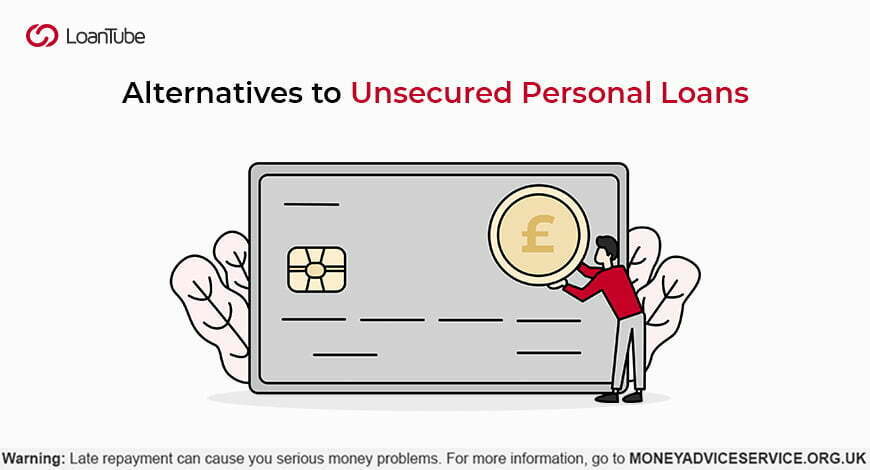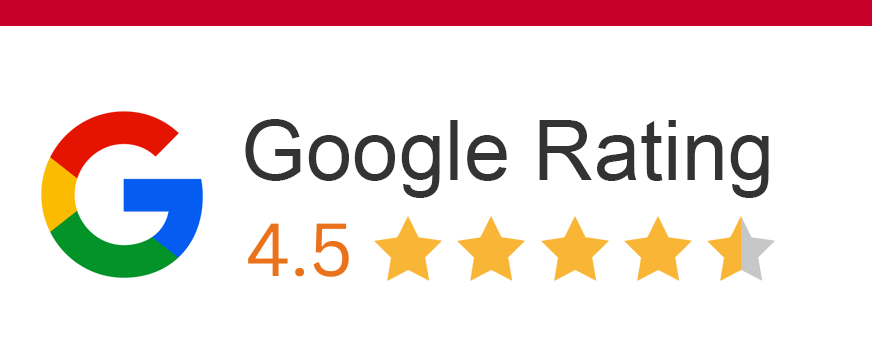Unsecured personal loans are ideal for people who want to avoid using collateral security. However, if you’re finding it difficult to qualify for one, consider these 8 alternatives to pull you out of a financial crisis.
Unsecured personal loans can undoubtedly solve a plethora of purposes. But they’re not the only way to finance the venture that’s on your mind. Besides, your circumstances dictate which option will work out for you. You may want to borrow a larger amount of money, or you may require quick cash.
In this article, we’ll throw some light upon some alternatives that you can use instead of unsecured personal loans. Read on to learn when personal loans are a good idea.
Maximise your options: Compare and apply for loans below with LoanTube
Apply Filters

Loan Amount
£4000 -
£20000
Norwich Trust
Loan Term
1 -
10 years
4.8/5
Representative APR
22.9%
Minimum Age
21 Years
Representative Example If you borrow £20000 over 72 months, your representative APR will be 22.90% APR. Your monthly repayments will be £488.36 and the total amount repayable will be £35,161.92.

4.8/5
Norwich Trust
Loan Amount
£4000 -
£20000
Loan Term
1 -
10 years
Representative APR
22.9%
Minimum Age
21 Years
Minimum Income
£2000 per month
Representative Example If you borrow £20000 over 72 months, your representative APR will be 22.90% APR. Your monthly repayments will be £488.36 and the total amount repayable will be £35,161.92.

Loan Amount
£5000 -
£100000
Evolution Money Loans
Loan Term
1 -
20 years
4.5/5
Representative APR
28.96%
Minimum Age
18 years
Representative Example: Loan Amount: £20950.00, Loan Term: 85 Months, Interest Rate: 23.00% PA Variable. Monthly Repayments: £537.44. Total Amount Repayable: £45,682.15. This example includes a Product Fee of £2,095.00 (10% of the loan amount) and a Lending Fee of £714.00

4.5/5
Evolution Money Loans
Loan Amount
£5000 -
£100000
Loan Term
1 -
20 years
Representative APR
28.96%
Minimum Age
18 years
Minimum Income
Not mentioned
Representative Example: Loan Amount: £20950.00, Loan Term: 85 Months, Interest Rate: 23.00% PA Variable. Monthly Repayments: £537.44. Total Amount Repayable: £45,682.15. This example includes a Product Fee of £2,095.00 (10% of the loan amount) and a Lending Fee of £714.00

Loan Amount
£1000 -
£10000
1Plus1 Guarantor Loans
Loan Term
1 -
5 years
4.4/5
Representative APR
47.80%
Minimum Age
18 years
Representative example: If you borrow £3000 over 36 months at a Representative rate of 47.8% APR and an annual interest rate of 39.7%, you would pay 12 monthly installments of £143.84. The total charge for credit will be £2178.24 and the total amount payable will be £5178.24.

4.4/5
1Plus1 Guarantor Loans
Loan Amount
£1000 -
£10000
Loan Term
1 -
5 years
Representative APR
47.80%
Minimum Age
18 years
Minimum Income
Not mentioned
Representative example: If you borrow £3000 over 36 months at a Representative rate of 47.8% APR and an annual interest rate of 39.7%, you would pay 12 monthly installments of £143.84. The total charge for credit will be £2178.24 and the total amount payable will be £5178.24.
How exactly do unsecured personal loans work?
A lot of loan options in the market are earmarked to serve a certain purpose. For instance, you can use a mortgage to purchase a property and an auto loan to buy a car. Both, a mortgage and an auto loan are secured loans, wherein you use your home and car as collateral, respectively. Now if you were to default, the lender would seize and repossess these assets to recuperate their loss.
An unsecured personal loan, on the other hand, doesn’t require collateral. In the event of a default, the lender can pursue you for the money legally, by getting a CCJ issued in your name. There’s a greater risk involved for the lender. For this reason, unsecured personal loans tend to have slightly higher interest rates compared to their counterparts. Just how high the rate will depend on several factors, including your credit rating, income, employment history and debt-to-income ratio.
Missing repayments for an unsecured personal loan can gravely damage your credit score. Plus, a CCJ stays on your credit report for 6 years, hampering your chances of securing credit in the future.
When are unsecured personal loans a good idea?
Spanning over 12 to 60 months, unsecured personal loans can give you the convenience and expediency of short-term loans. You can also borrow a fairly substantial amount of money, unlike other alternatives with credit limits. Here’s when unsecured personal loans make more sense:
- You cannot avail a low-interest credit card.
- The credit limits placed on your card don’t align with your current expenses.
- You can avail of low-interest rates on a personal loan.
- You don’t have or want to refrain from offering collateral.
- You want to borrow a comparatively large amount of money over a shorter term.
Unsecured personal loans can help you solve the following purposes:
- Pay-off credit card debt
- Repay high-interest debts
- Finance your home improvement project
- Finance a major life event – your wedding, a holiday
- Build or improve credit score
8 alternatives to unsecured personal loans
- Budgeting Loan: A budgeting loan can help you through an urgent financial crisis when you’re on a low income. You can borrow this interest-free loan from the Social Fund if you’re a benefits claimant. This option is much cheaper than other high-cost short-term forms of credit. While you don’t have to pay interest on budgeting loans, you’ll be required to repay the loan in full. The repayment period for these loans is usually 2 years. In case you’re claiming Universal Credit, you can opt for a budgeting advance instead of a budgeting loan. You can repay a budgeting advance with your Universal Credit payments, within 12 months.
- Home Equity Loan and HELOC: Home equity loans and HELOC let you leverage the equity in your property to borrow money. Home Equity Line of Credit or HELOC works similar to revolving credit, wherein the lender sets a borrowing limit based on your equity. You can utilize this money at your discretion and only have to pay interest on the money that you’ve used. Home equity loans, on the other hand, allow you to borrow money against the equity in your property, payable over fixed monthly instalments. The amount of money that you can borrow using a home equity loan or HELOC is usually high, with long repayment periods and relatively low-interest rates. However, these forms of credit pose a threat to your property. In case of a default, the lender can seize and repossess your property. Additionally, you must have some equity in your property to avail a HELOC or home equity loan.
- Mortgage Refinance: If you’ve paid off a significant amount of your mortgage, your credit score would’ve drastically improved from the timely repayments. You may now be able to qualify for more competitive rates than you formerly were. Mortgage refinancing allows you to explore new mortgage offers, potentially with lower interest rates. You can borrow a greater amount of money by refinancing your mortgage. However, your income, ongoing debt, affordability and creditworthiness will dictate how much you can qualify for. Another determining factor is the Loan-to-Value ratio, which is derived by comparing the amount you wish to borrow and your property’s value. You should ideally maintain a low LTV.
- Line of Credit: A line of credit lets you borrow money on a rolling basis. So a lender makes a certain amount of money available to you, as and when you need it. Now, whenever you need cash, and you’ve maintained a good credit standing, you can ask the lender to transfer some money into your account. Regardless of the amount that the lender sets aside, you will only have to pay interest on the money that you use.
- Credit Card: For smaller and more urgent expenses, a credit card may come in handy. Your credit card balance, along with interest, can be paid off at the end of the month. Banks also offer credit cards with promotional periods of 0% interest rate, usually up to 6 months. As long as you repay the outstanding balance within this promotional period, you won’t be charged interest. You can use a credit card to make a one-off purchase or to tend to a medical emergency.
- Authorized bank Overdraft: When a bank allows you to continue withdrawing money from your account despite no balance, it’s called an overdraft. Most banks offer authorized overdrafts where they enable you to go into debt with them. The interest rates imposed on overdrafts are relatively higher than other forms of credit. However, if you exceed the mutually agreed overdraft limit, the interest charges will be much higher, and the bank will start bouncing all your cheques. The overdraft that a bank grants, depends on your circumstances and history with the bank.
- Salary Advance: If you’re stuck in a cash crunch and feel like you’re miles apart from the payday, consider a salary advance. Discuss your situation with your employer to see if they agree to a pay advance. If you’re a benefits claimant awaiting your payment, you may ask a Jobcentre Plus adviser for a short-term money advance. You can repay this amount from your benefits payment.
- Borrowing from friends or family: Bringing up borrowing in front of friends or family may be difficult for some. But have faith in your loved ones and discuss your financial problems with them. They may be able to help you out of a short-term cash crunch. Create a repayment plan and discuss it with them beforehand to avoid any misunderstanding.
Here’s your checklist to choose the ideal option
The following factors can help you determine an option that’s tailor-made for your needs:
- Interest rate: Your credit score plays a crucial role in the interest rate that a lender imposes on your loan. You may be able to qualify for competitive rates with a good credit score. However, interest doesn’t determine the overall cost of a loan. So compare APRs to find a loan with the lowest overall charge.
- Collateral Requirement: Unsecured personal loans don’t require collateral security, whereas secured loans do. Assess your situation and check if you’re comfortable with putting up collateral against the loan. If you’re not, look for options that don’t require one, such as unsecured personal loans or credit cards.
- Processing time: Are you in need of urgent cash? Check how long the lender will take to process your application. If you’re running out of time, consider some alternatives such a pay advance.
- Repayment terms: Each lender sets different loan terms. See if you’re comfortable with repayment terms of the loan before signing the agreement.


